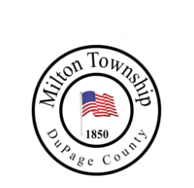Understanding How Your Property is Assessed
Responsibilities of the Assessor
To assess means to determine the value of something. A Township Assessor is an elected official who determines the value of property for tax purposes. The Assessor does not estimate or compute the Real Estate Taxes, does not send out Tax Bills, and does not collect Property Taxes. The Assessor is responsible for the fair and equitable appraisal of every parcel of property in their jurisdiction.
The Township Assessor keeps Property Record Cards which contain all the pertinent information about each parcel. The information includes; a brief legal description, land size, dimensions of all buildings, building type, and quality of materials used in construction of the structure. Most of this information is gathered when the property is first built and then updated after that by periodic field inspections. Property Record Cards are available for inspection during regular working hours at the Township Office. Some of this information is available on line through this website.
The Township Assessor also receives copies of the Real Estate Transfer Declarations or "green sheets" for homes that have sold in the area. This sales information, along with other facts and figures about housing conditions, goes into the evaluation process. By comparing recent sales of homes in a neighborhood the Township Assessor estimates how much all homes in that area would be sold for on the open market. This is their Market Value. Market Value, as used in the appraisal of real estate, is defined by the Appraisal Institute as:
"The most probable price, as of a specified date, in cash or in terms equivalent to cash, or in other precisely revealed terms, for which the specified property rights should sell after reasonable exposure in a competitive market under all conditions requisite to a fair sale, with the buyer and seller each acting prudently, knowledgeably, for self-interest, and assuming that neither is under duress"
The appraisal of the property is made by using all of this data to apply the three commonly used approaches to value; Cost, Income Capitalization and Sales Comparison Approach. The three estimates of value are then tempered by the Assessor's experience and judgment into a final estimated value.
The basis for all assessments and reassessments is Market Value (occasionally the terms "full value" or "fair cash value" are used. According to Illinois State law, all property in Illinois (except Cook County) should be assessed at 33.33%, or one third of Market Value. This is known as the level of assessment. For example, if a home could be sold for $330,000, the Assessed Valuation would be approximately $110,000 ($330,000 x 33.33%). Once the Market Value of a property is determined, the Township Assessor places the value of the property at the required percentage which results in the Assessed Valuation.
The Assessed Valuation is the base which other county, city, township, and village officials use when they determine property taxes.
Responsibilities of the Supervisor of Assessments
This office was created by state law and any person holding this office is required to hold specific appraisal designations and pass a state examination. The office assists the Township Assessors by advising them in technical matters and informing them of current legislation which affects the assessment process. The Supervisor of Assessments also maintains records of exempt properties and exemptions such as the Senior Homestead, the Senior Citizens Freeze, and the Home Improvement exemption. In addition to these duties the Supervisor of Assessments may equalize assessments to achieve greater uniformity and equity within DuPage County.

